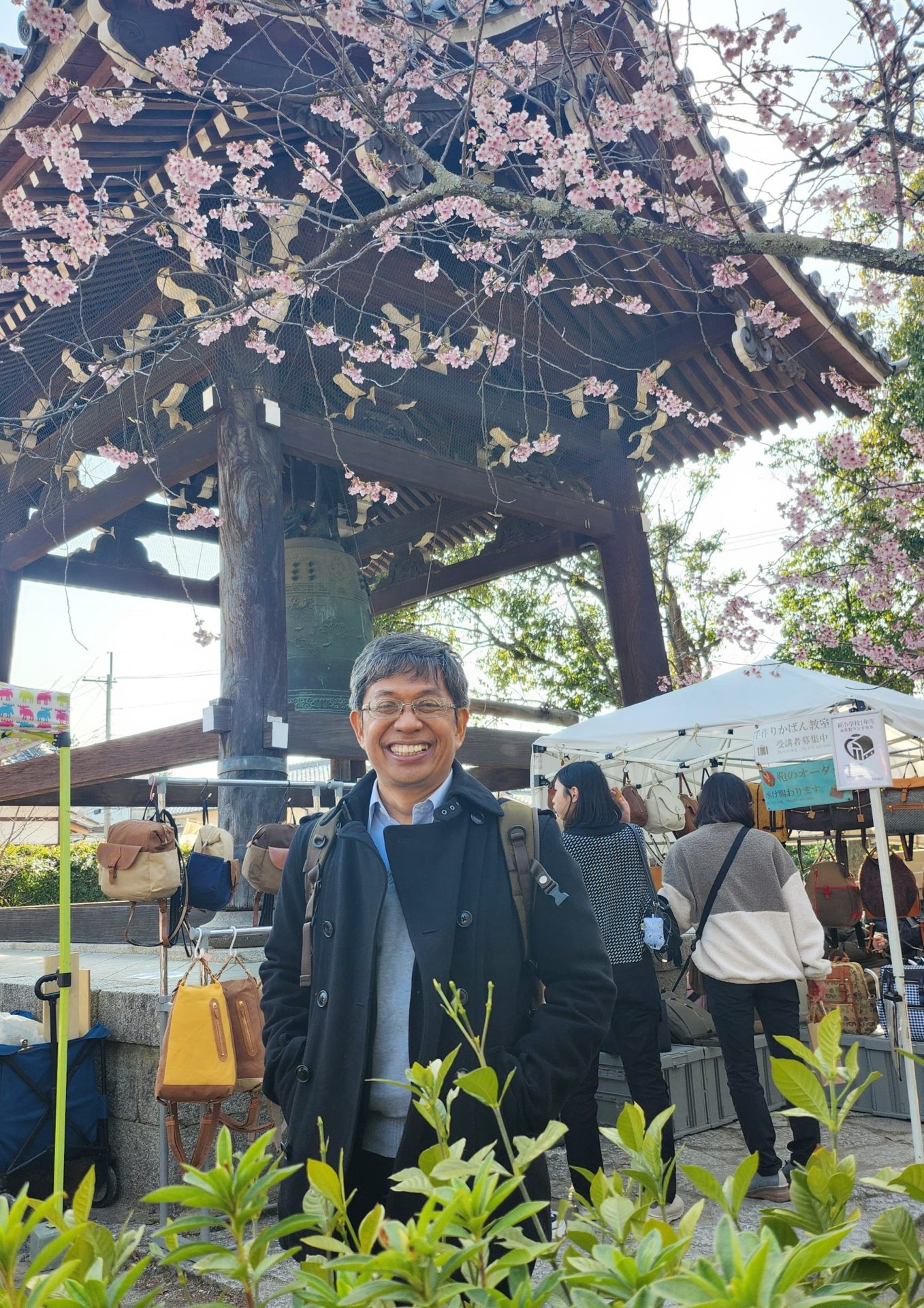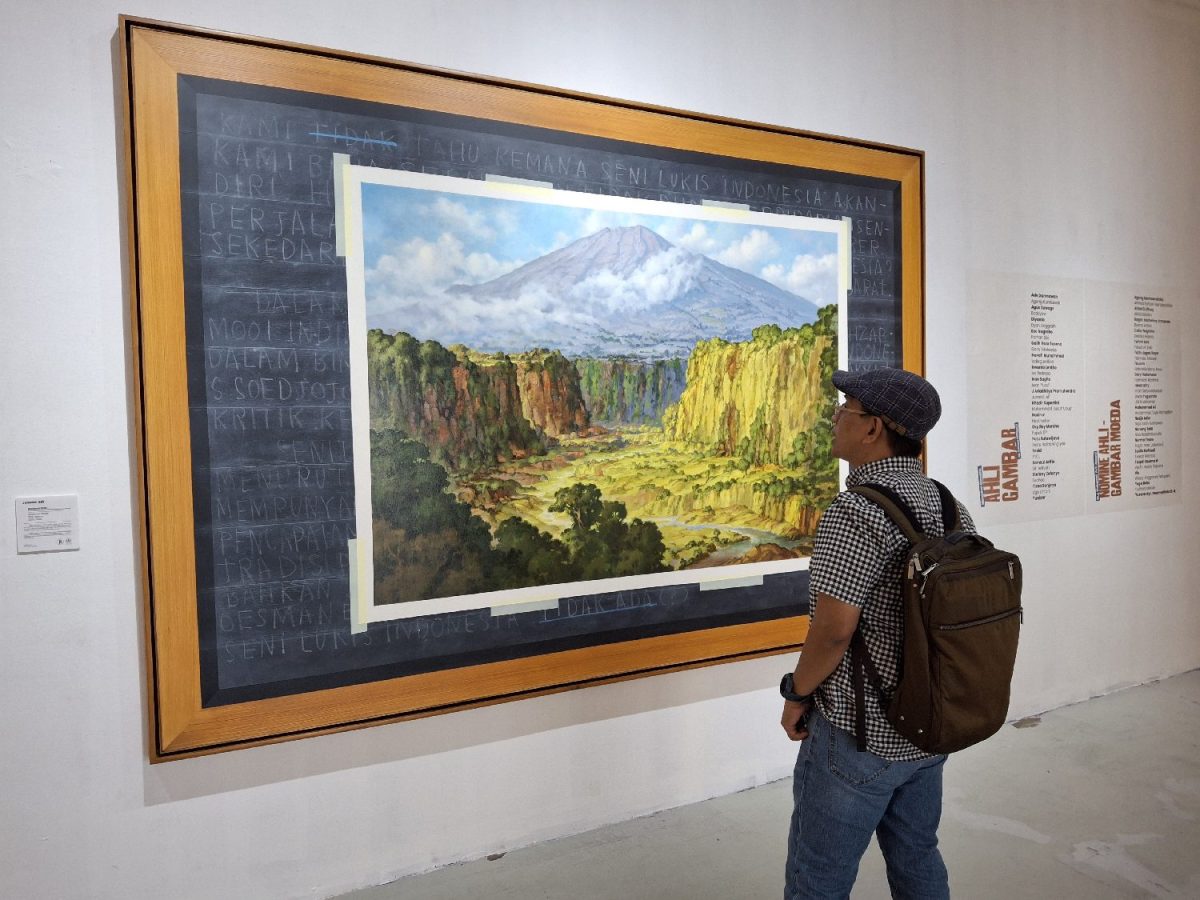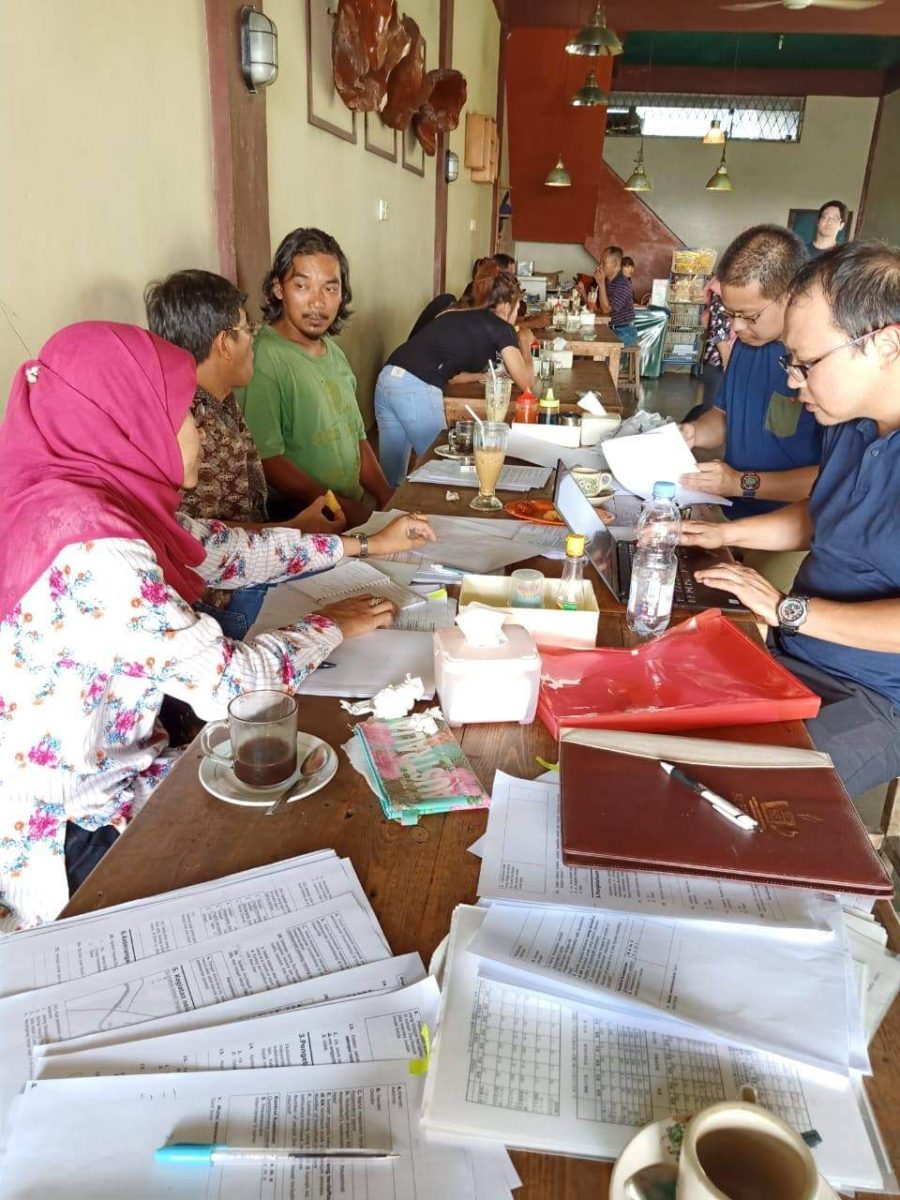Wahyu, Prasetyawan

VISITOR’S VOICE
Interview with Wahyu Prasetyawan
Political Economy ❘ Syarif Hidayatullah Islamic State University
CSEAS Visiting Research Scholar: November 2024 to April 2025
WHAT ARE YOUR…?
FAVORITE THINGS
Jogging
I believe there is no better way to start the day than by running for a short distance. It allows me to appreciate the wind and its effects on my body. While I may not be able to do it every day, it provides me with a sense of calm and positivity throughout the day.
Visiting Art Museums
My visits to art museums have gradually evolved from appreciating the beauty of artwork to considering the historical context in which they were created to gaining a deeper admiration for the mysteries of art. By looking at artworks, I can also imagine how the artists must have struggled to complete them.

Interview
Transformation of Indonesia’s Political Economy, 2004-2024: Power, Capital, and Networks
01
Please tell us about your research.
My principal research interest is the transformation of Indonesia’s political economy. This topic allows me to evaluate the country’s networks of political and business actors, examining the relationships among individuals and the impact of these connections on the formation of policy during the past two decades. As an example, it is evident that there are occasions when the formulation and implementation of policies by political and business actors in the forestry sector can facilitate the exploitation of natural resources, which can ultimately result in deforestation and the destruction of people’s lives and their way of life. In the mining sector, policies may confer benefits to the business and political actors who designed them while conversely have an adverse impact on biodiversity and the way of life of those living in mining areas. It seems fair to posit that the connections between politicians and business actors are not entirely neutral, given that both sets of actors espouse ideologies and pursue political and economic interests.
02
Can you share with us an episode about any influential people, things, and places you have encountered whilst doing your research.
Both the experiences of villagers in remote Riau, Indonesia, who have faced challenges due to large-scale palm oil plantations, and the significant student demonstrations in 2019 against the proposed revisions to the Corruption Eradication Commission (KPK) have shaped the direction of my current book project. From the villagers, I was privileged to learn how people adapt to a rapidly evolving environment. From the students who staged demonstrations, I was able to ascertain how people can articulate and oppose policy that impedes democratic principles.

03
Do you have any essential reads (books) that you recommend to younger people?
It is important to note that different scholars will find different resources useful, and therefore it is crucial to select works that are of most interest and relevance to your work. In the field of network science, Linked: How Everything Is Connected to Everything Else and What It Means for Business, Science, and Everyday Life by Albert L. Barabasi provides valuable insights into the role of networks in everyday life. Why Nations Fail by Daron Acemoglu and James Robinson is both sophisticated and accessible. It is an excellent resource for anyone interested in the role of institutions in economic growth.
04
Do you have any must-have gear for field research and writing?
I am driven by a passion to employ a multifaceted approach to research that integrates personal interviews with print and visual material to elucidate the connections among individuals and the contexts in which they occur. I invariably take a smartphone and a recording device with me to conduct research with politicians and business actors. This is mainly done in urban settings, although on occasion I do venture into more remote locales. I use R, a programming language for statistical computing, for network visualisation and quantitative analysis.
05
What is your ideal image of a researcher, and do you have any advice for those who aim to become researchers?
In my view, the ideal researcher is someone who has a strong passion for their field, a keen interest in how the social world works, and a dedication to the pursuit of knowledge. They should not assume that the existing explanation is correct, and they should be willing to consider different perspectives, even if those perspectives challenge their own beliefs. They should be able to enjoy the research process and interact with a diverse range of individuals from varying backgrounds.
06
What are your future ambitions as a scholar?
I chose to pursue an academic career because I wanted to contribute to society. I am grateful for the opportunities that rural Indonesian society has given me, to learn more about its history and aspirations and to support the preservation of a way of life that is dependent on natural resources. After many years of research, I am keen to share my expertise with others, both in and outside the classroom. My areas of interest include environmental issues, democracy, and people’s prosperity. It is my hope that future generations of researchers and teachers will demonstrate a greater awareness of human life, environmental change, and the social and political contexts in which they operate.
07
Why did you choose CSEAS, or what is your expectation here?
I am grateful for the opportunity to participate in the CSEAS fellowship program and to return to a research center that prioritizes Southeast Asia. I enjoy working in the interdisciplinary environment of the center, where I can learn from other fellows. I am looking forward to learning both from scholars who have similar interests and those who have different research agendas, to write and to discuss my research, and to receive feedback.
(November 2024)
References
Barabasi, A.L. 2014. Linked: How Everything Is Connected to Everything Else and What It Means for Business, Science, and Everyday Life. Basic Books.
Acemoglu, D. and Robinson, J. 2013. Why Nations Fail: The Origin of Power, Prosperity, and Poverty. Penguin Random House.
* The views expressed herein are those of the authors and do not necessarily reflect the views of the Center for Southeast Asian Studies, Kyoto University.
Wahyu Prasetyawan is currently an associate professor at Syarif Hidayatullah Islamic State University (UIN) in Jakarta and has been a visiting professor since 2007 at GRIPS (the National Graduate Institute for Policy Studies) in Tokyo. He received a PhD in Political Economy from Kyoto University and received an MA degree in Development Studies at the University of Leeds, UK. His book Networked: Business and Politics in Decentralizing Indonesia, 1998-2004, published by NUS and Kyoto University Press in 2018, received the 36th Masayoshi Ohira Memorial Prize for books in social sciences. He is one of the editors of Local Governance of Peatland Restoration in Riau, Indonesia (Springer 2023) and Standing Firm for Indonesia’s Democracy: An Oral History of President Susilo Bambang Yudhoyono (World Publishing 2024). He carries out research on the political economy of natural resources, economic growth, and the impact of democratization on identity politics.
Visitor’s Voiceは、CSEASに滞在しているフェローを紹介するインタビューシリーズです。彼らの研究活動にスポットを当てながら、研究の背景にある人々やさまざまなエピソードを含めて、一問一答形式で紹介しています。
